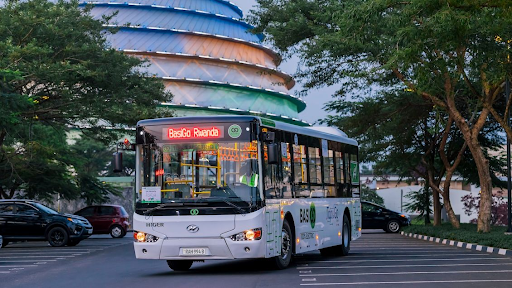Rwanda: A shift toward electric motorbikes and sustainable mobility
Starting in January 2025, Kigali, the capital of Rwanda, will stop registering petrol-powered motorcycles for public transport. Only electric motorcycles will be allowed to operate in the commercial transport sector, marking a bold move by the government to promote greener mobility and reduce greenhouse gas emissions. This initiative is a significant step in the country’s ecological transition, supported by fiscal incentives and investments in green infrastructure.

In a major shift toward the future of sustainable mobility, the Rwandan government has announced that, starting in January 2025, the registration of petrol-powered motorcycles for public transport will be prohibited in the city of Kigali. Only electric motorcycles will be eligible for registration for commercial use. This measure, part of a broader national strategy to promote more eco-friendly transport options, signifies Rwanda’s strong commitment to reducing carbon emissions and improving air quality.
A bold change for cleaner air and green transport
The decision, confirmed by the Ministry of Infrastructure, aims to transform Rwanda’s transport landscape. Jimmy Gasore, the Minister of Infrastructure, emphasized that Kigali’s electric motorbike ecosystem is now mature enough to support this transition. “We will no longer register petrol motorbikes for public transport in Kigali. Only electric ones will be considered for commercial transport,” he said in an interview with The New Times.
This measure is part of the government’s desire not only to replace petrol motorcycles but also to discourage the importation of non-electric motorbikes for public transport. The minister clarified that this policy would not affect existing petrol-powered motorcycles, which will continue to operate until they are worn out. This approach ensures the transition occurs without disrupting the income of drivers and motorcycle owners.
Environmental and economic benefits
The benefits of this policy extend well beyond cleaner air. Juliet Kabera, Director-General of the Rwanda Environment Management Authority (REMA), highlighted the environmental benefits of electric motorbikes, which produce zero emissions. Kabera also mentioned a pilot project in which petrol-powered motorbikes were converted into electric bikes, a solution that reduces the transition costs for owners. She stressed that electric bikes are not only eco-friendly but also more affordable in the long term, offering substantial savings to drivers.
Economically, this policy aligns with Rwanda’s strategy to reduce its dependence on fuel imports. According to a study on the impact of scaling up electric motorbikes, Rwanda could save up to 9 billion Rwandan francs annually by reducing fuel imports. Currently, the country spends about 23 billion Rwandan francs annually on fuel imports, while electric motorcycles would require only 14 billion Rwandan francs annually for domestically produced electricity.
A strategic shift in Rwanda’s transport ecosystem

The push for electric mobility is not only driven by environmental concerns but also fits into Rwanda’s long-term economic strategy. Rwanda’s Climate and Nature Finance Strategy (CNFS), launched in October 2024, aims to reduce emissions by 38% by 2030. This initiative includes measures to attract green investments, such as subsidies for electric vehicles, taxes on high-emission vehicles, and adjustments to fuel taxes. With these incentives, the Rwandan government hopes to promote the widespread adoption of electric vehicles across the country.
Additionally, the Rwandan government has already implemented measures to support this transition, such as exempting electric and hybrid vehicles from import duties. These steps aim to make electric motorcycles more affordable and encourage their adoption, both by individual consumers and businesses.
Rwanda as a model for Africa
The shift to electric motorcycles represents a significant step in Rwanda’s ambition to become a leader in sustainable mobility in Africa. The country, already recognized for its ecological initiatives and commitment to sustainability, is positioning itself as a model for other African nations. Kigali, often praised for its cleanliness and innovation, is now positioning itself as a hub for sustainable mobility, where the rise of electric motorcycles could inspire other cities across the continent to follow suit.
With the implementation of this policy, Rwanda is not only addressing environmental challenges but also paving the way for a new green economy that could generate new jobs, stimulate innovation, and strengthen resilience in the face of climate change.






